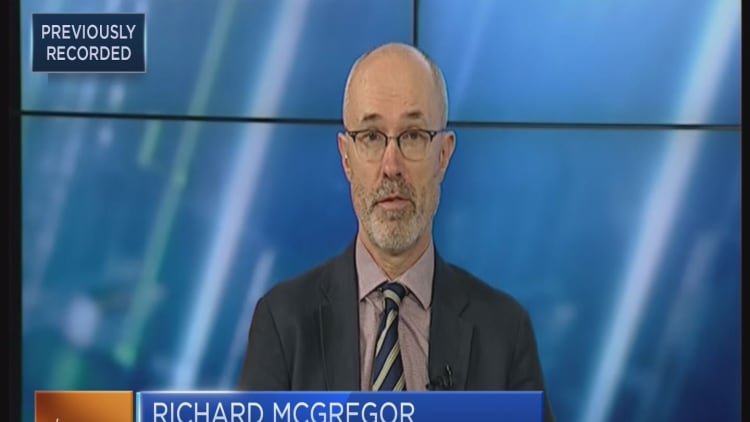
Japanese Prime Minister Shinzo Abe is the only leader from a major stakeholder country to not publicly arrange a meeting with North Korea's Kim Jong Un this year.
"Japan has been very isolated on the North Korean issue," said Richard McGregor, senior fellow at think tank the Lowy Institute in Australia.
Tokyo has, however, managed to show it's still part of the wider discussion on the reclusive regime after a trilateral meeting with China and South Korea on Wednesday, experts said.
Chinese President Xi Jinping and South Korean President Moon Jae-in have both met with Kim in the last few weeks. U.S. President Donald Trump, meanwhile, is expected to hold a meeting with Kim in coming weeks.
Because of those meetings, "for Japan, it was particularly important to try and play themselves back into this game, which of course, they are in the center of, whether they like it or not," McGregor told CNBC's "The Rundown."
The trilateral meeting, the first such event in three years, was held in Tokyo on Wednesday and came against the backdrop of domestic political concerns surrounding Abe.
On Wednesday, China, Japan and South Korea agreed to cooperate in seeking the denuclearization of the Korean Peninsula. Abe, for his part, praised efforts by the other two nations to engage North Korea and said further efforts on denuclearization were essential.

Abe said after Wednesday's summit that his country will seek to normalize ties with North Korea if the nuclear and missile issues, along with that of the abduction of Japanese citizens, are solved comprehensively.
Pyongyang has admitted to kidnapping 13 Japanese citizens decades ago to train spies. Five have returned to Japan.
Even with a show of unity between the three East Asian countries, there are differences between Tokyo's stance on North Korea and Chinese and South Korean positions, said experts.
That is, Japan favors maximum pressure on the hermit regime, while the other two countries lean toward engagement.
"Abe, at some point, is going have to do some gymnastics. He's going to have to react to decisions that are being made at these summits that Japan is not a party to, and find a way to keep Japan engaged to still get what Japan wants out of the process," Tobias Harris, a Teneo Intelligence analyst, told CNBC's "Squawk Box."
—Reuters contributed to this report.

